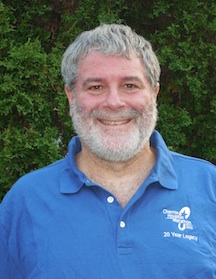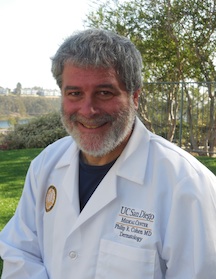New York Medical College, 1983, MD
Franklin & Marshall College, 1979, BA Biology, Magna cum laude
Occupation: Physician (dermatologist)
Chapter and Induction Year: Theta of Pennsylvania Chapter, 2003
Field(s) of Study: Medicine (specializing in dermatology with additional fellowship training in laboratory research, dermatopathology, and Mohs microscopically controlled surgery).
In a few words, my passion is

I would (try to) exercise daily and write fiction novels. I have been and continue to be successful as an author of medicine-related non-fiction papers with nearly 700 publications during the last 25 years. Indeed, each week, as I continue to care for patients, I encounter fascinating dermatology-associated observations that I feel compelled to share (as published articles in peer-reviewed journals) with the medical community. However, if I had sustained financial resources and no daily commitments, I would embrace the opportunity to transition from being an author of non-fiction to becoming a fiction writer.
What course in college had the greatest impact on you and why?
My most influential college course has changed during the years after graduation. Initially, I truly enjoyed my courses in mathematics that provided a methodic and organized analytic approach to solving problems; in addition, my science courses provided me with a foundation for further learning. A year of independent laboratory research investigating acetylcholinesterase activity in Japanese Medaka fish eggs allowed me to appreciate bench top research; I later spent a year attempting to develop an in vitro model to study pemphigus vulgaris—an autoimmune blistering disease. However, I relish the opportunity–as an author–to share my observations in dermatology; hence, in retrospect, the English class I took as a freshman has had the greatest impact on me.
Tell us a little about your first job after college.
After college, I attended medical school; thereafter, I trained in internal medicine and dermatology research before completing a dermatology residency. Afterwards, I worked as a dermatologist in private practice, followed by nearly a decade as a University-based dermatologist (where I also completed a dermatopathology fellowship) in Houston, Texas. The next decade included working in private practice, a Mohs surgery fellowship, and returning to a University-based practice. I relocated to San Diego, California 2 ½ years ago and currently—as a Clinical Professor–work in the dermatology department at the University of California San Diego.
What was the best advice you were ever given and who gave it to you?
Some of life’s lessons are synthesized from the collective mentoring of many teachers. I eventually realized 2 essential axioms that are applicable during not only my interactions with patients, but also my relationships with other people: (1) Hear what they tell you, but also listen to what they say, and (2) Do not only look, but also see what you are looking at. Yet, other paradigms in human interactions are learned by following the examples demonstrated by a single individual; my father, a retired orthodontist, was my first role model. He provided compassionate and excellent care for his patients. Each day, I strive to do the same.
What are some of your favorite pastimes and activities?
I worked part-time for a decade and was fortunate to be able to spend substantial time with my 2 sons and 2 daughters when they were young children. I enjoyed participating with my sons in Scouting; both of them-similar to myself-earned the Eagle Scout award. Since 9th grade, I have been a long distance runner; I participated as a Varsity athlete in high school and college. I still enjoy running (5 miles, 3 or 4 days each week)—by myself or with my wife, and/or with our Basenjis. During the last 25 years, I have completed 20 Houston marathons and 8 half marathons. Running is a family activity; my wife and children have also completed several half marathons in Houston. And, I also enjoy grilling; the weather in San Diego is excellent, allowing me the opportunity to grill at least 3 of every 4 weekends.
If I were a book, I would be a novel written by Sir Arthur Conan Doyle. A single contribution to the literature can be significant and affect the life of an individual. However, the collective literary works of an author can also be important and influence many persons. This Scottish physician is the prototype “doctor-author.” In addition to being the writer of Sherlock Holmes stories of detective fiction and science fiction books, he was also the author of works of non-fiction and historic novels.
As a Phi Beta Kappa member and liberal arts and sciences graduate, why do you think the liberal arts are important? How has your education or membership in Phi Beta Kappa impacted your life, personally or professionally?
It is my strong interest and preference for sciences that allows the influence of my exposure to liberal arts to be important; indeed, they are complementary components—and not exclusionary polarities—of the ‘Aristotle’ scholar. If academic advances and scholarly contributions were a building, the sciences would be the concrete foundation and supporting girders that provide the strength of conviction and stability of concepts while the liberal arts would be the walls and halls that create the supporting infrastructure and pathways to knowledge. Education is a cyclic process and an integral aspect of my life; I not only passionately pursue the opportunity to continuously learn, but also earnestly strive for the chance to share what I have learned with others.
This Member Spotlight was originally published in August 2015 as a “Behind the Key” feature on the Phi Beta Kappa website. “Behind the Key” showcases members whose lives have been shaped by the liberal arts and sciences.





